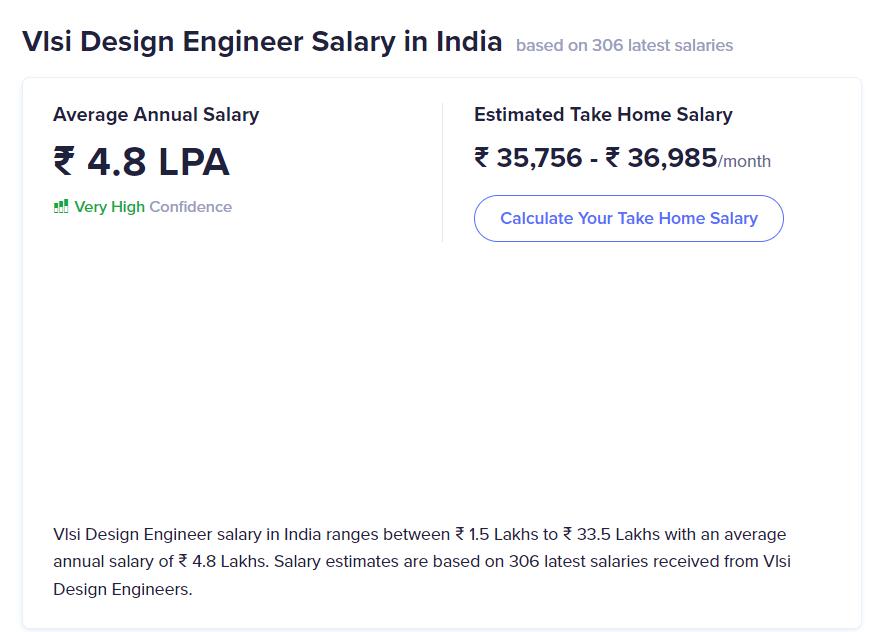10 Tips on How to Advance Your VLSI Design Career
Very Large Scale Integration (VLSI) design is a highly specialized field within the semiconductor industry, responsible for creating complex integrated circuits that power modern electronics
A career in VLSI design offers exciting opportunities for innovation and technical expertise. To excel in this field and advance your career, you need a combination of technical skills, continuous learning, and professional development. In this article, we'll explore ten valuable tips to help you advance your VLSI design career
Solidify Your Educational Foundation
A strong educational foundation is essential for a successful career in VLSI design Pursue a bachelor's degree in electrical engineering, electronics, or a related field.

Consider pursuing an online VLSI courses for deeper specialization. Courses in digital design, microelectronics, and computer architecture will be particularly valuable.
Master the Fundamentals of Digital Design
Understanding the basics of digital design is crucial. This includes concepts like logic gates, flip-flops, finite state machines, and combinational and sequential logic Gain proficiency in hardware description languages (HDLs) like VHDL and Verilog, which are used extensively in VLSI design.
Learn Electronic Design Automation (EDA) Tools
EDA tools are the backbone of VLSI design. Familiarize yourself with industry-standard EDA tools like Cadence, Synopsys, and Mentor Graphics These tools are used for schematic capture, simulation, synthesis, and physical design. Gaining expertise in EDA tools is vital for VLSI engineers.
Specialize in ASIC or FPGA Design
VLSI design can be divided into two main areas: Application-Specific Integrated Circuit (ASIC) design and Field-Programmable Gate Array (FPGA) design Specializing in one of these areas can provide a clear career path. ASIC design involves creating custom integrated circuits for specific applications, while FPGA design focuses on programmable hardware
Understand Low-Power Design Techniques
As power efficiency becomes increasingly important in electronics, mastering low-power design techniques is a valuable skill. Learn how to optimize circuits for minimal power consumption while maintaining performance. Familiarize yourself with clock gating, voltage scaling, and other power-saving techniques
Stay Updated on Semiconductor Technologies
The semiconductor industry evolves rapidly Keep yourself informed about the latest semiconductor technologies, such as advanced process nodes (e.g., 7nm, 5nm), 3D integration, and emerging memory technologies like MRAM and RRAM. Understanding these developments will make you a more valuable asset to your organization.
Build a Strong Portfolio
Create a portfolio showcasing your VLSI design projects. Highlight your contributions and the impact of your work. Include details about the tools, methodologies, and technologies you used A strong portfolio is essential when applying for jobs or seeking career advancement.
Participate in Industry Conferences and Workshops
Attending industry conferences and workshops can expand your knowledge and network. Events like the Design Automation Conference (DAC), International Solid-State Circuits Conference (ISSCC), and VLSI Technology Symposium provide opportunities to learn from experts and stay updated on industry trends.
Collaborate and Network
Networking is essential in any field. Collaborate with colleagues, mentors, and industry professionals. Join professional organizations like the IEEE (Institute of Electrical and Electronics Engineers) and participate in local VLSI design groups Building a strong professional network can lead to job opportunities and valuable insights.
Pursue Advanced Certifications
Consider obtaining certifications to demonstrate your expertise. Certifications from EDA tool vendors like Cadence and Synopsys can validate your proficiency with their tools. Additionally, certifications in project management, quality assurance, or specific VLSI domains can enhance your qualifications.
Conclusion
Advancing your VLSI design career is a rewarding journey that requires dedication, continuous learning, and a passion for innovation.

By solidifying your educational foundation, mastering digital design principles, becoming proficient in EDA tools, and specializing in ASIC or FPGA design, you can position yourself as a sought-after VLSI engineer Additionally, staying updated on semiconductor technologies, building a strong portfolio, networking, and pursuing certifications can help you achieve your career goals in this dynamic and ever-evolving field
Remember that success in VLSI design is not just about technical skills; it's also about your ability to adapt to new challenges and contribute to the development of cutting-edge technologies that shape the future of electronics.
Reference:
https://www.businesstoday.in/technology/news/story/heres-how-india-can-fill-the-s emiconductor-talent-gap-for-the-world-391665-2023-07-28
https://www cxotoday com/interviews/mahindra-universitys-vlsi-design-program-acti ng-as-catalyst-for-performance-enhancement-of-semiconductor-industry-dr-ram-m-v emuri-professor-hod-department-of-electrical-and-electronics/
https://m.timesofindia.com/city/allahabad/summer-training-on-vlsi-design-begins-atiiit-a/articleshow/101121185.cms
